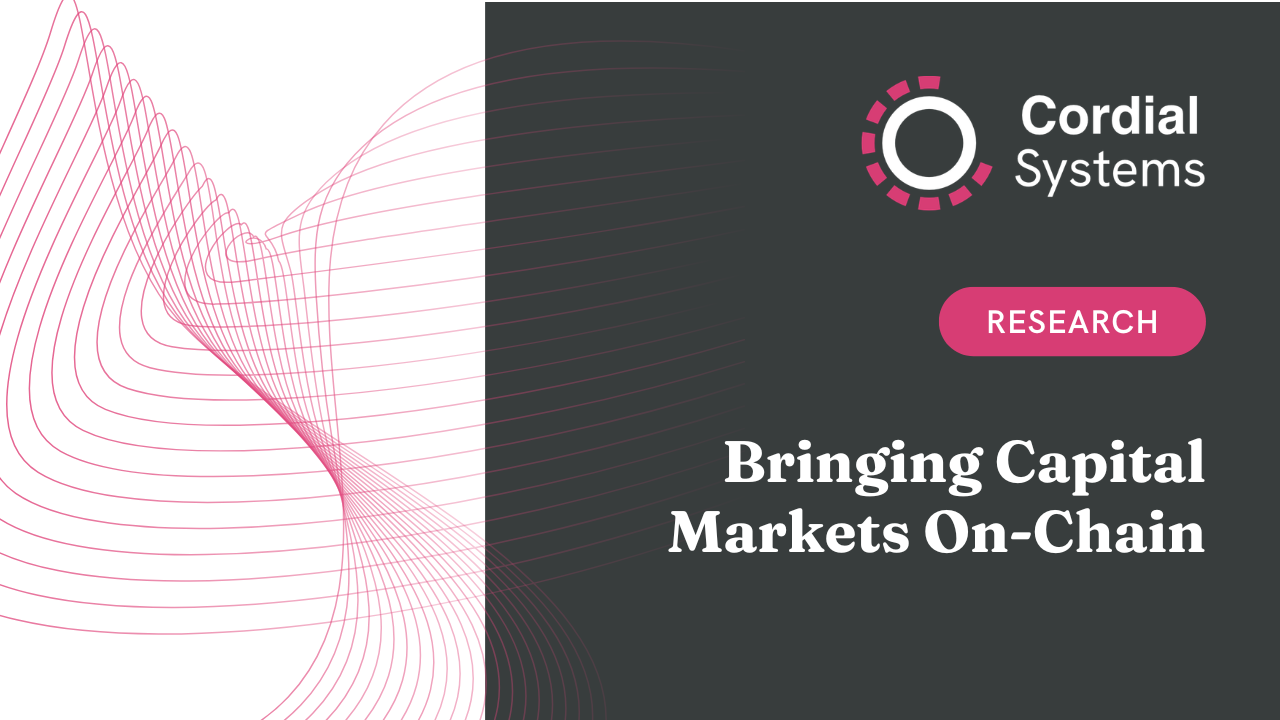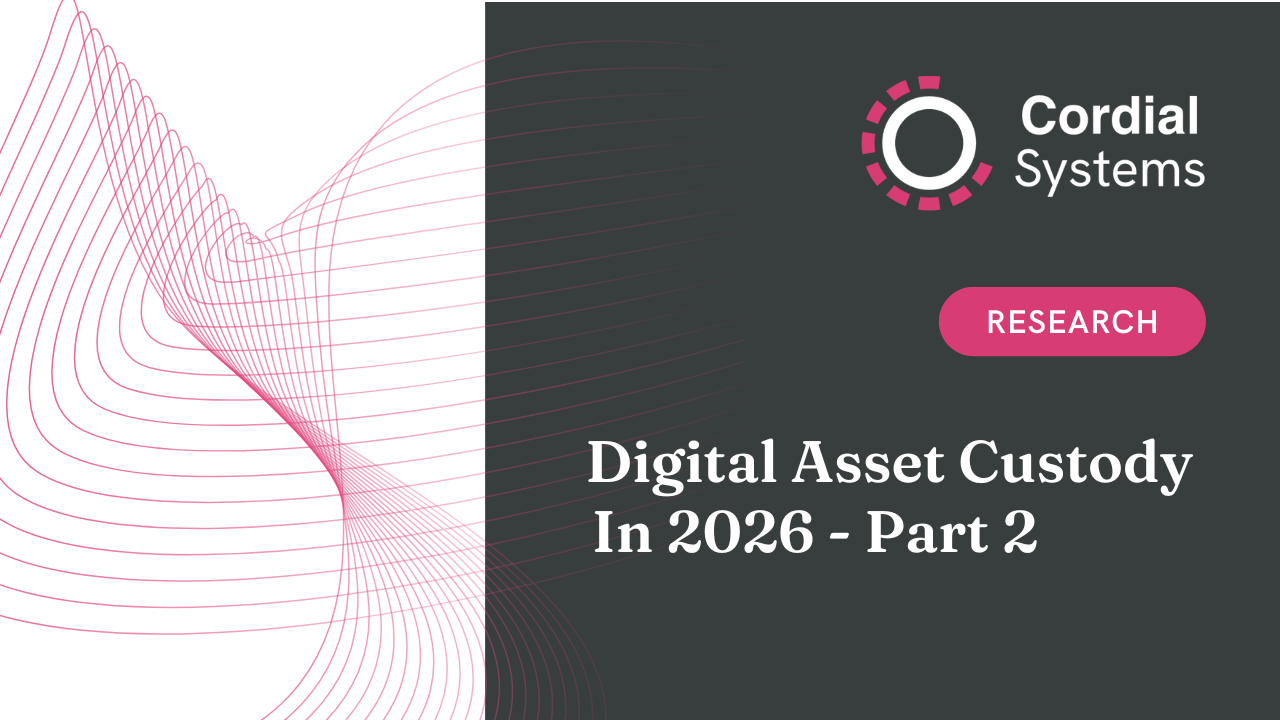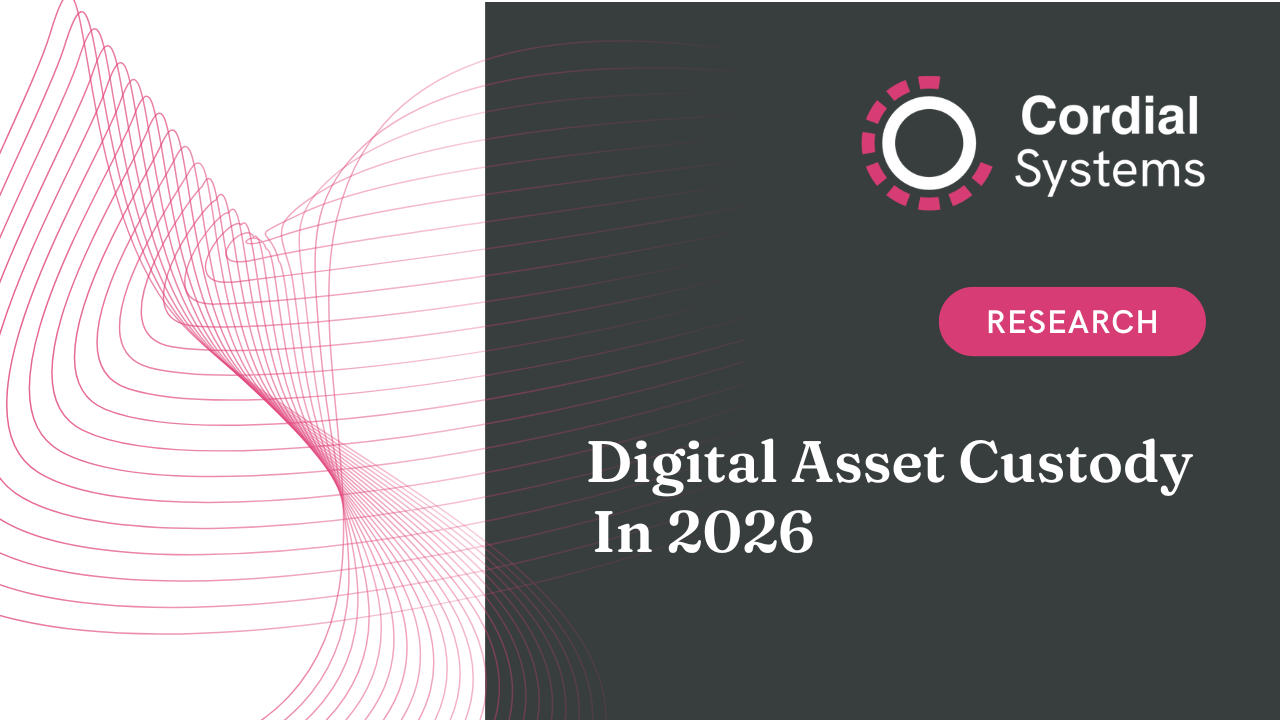
By Haden Patrick, Cordial Systems Director of Business Operations
If you’ve been following the conversation around Artificial Intelligence, you’ve likely watched it evolve from Large Language Models to generative AI, and now to AI Agents. And if you’ve attended any recent finance, fintech, or crypto conference, chances are you’ve already seen the first wave of startups building AI agent solutions directly in your space.
We’re seeing AI agents being used for a variety of functions:
- Predictive models aggregated into a meta-model for managing a fund’s capital (Numerai)
- Automation of crypto trading and DeFi tasks (fetch.ai)
- Strategy builders for crypto trading bots (Kryll.io)
- Personal AI agents designed to autonomously interact with DeFi protocols (Morpheus AI)
- AI-powered DeFi yield generation (APEX Optimizer)
The idea of AI simply giving advice is quickly giving way to AI agents that actually execute — placing trades, moving assets, and interacting with protocols entirely on their own. It’s an exciting evolution, but it brings a very real question to the surface: how do you safely let machines execute on your behalf without compromising security?
The Core Risk: Delegation Means Key Access
Let’s be clear: any AI agent operating on your behalf will need some level of authority over your private keys. Whether it’s rebalancing positions, executing strategies, or automating treasury management, the ability to authorize transactions is non-negotiable. And that’s where things get tricky.
Giving full access to private keys would be a non-starter for any serious institution. It exposes you to rogue agent behavior, code vulnerabilities, API compromises, or worse. Once full key access leaves your control, you’ve created a serious security gap - one that no level of AI sophistication can close retroactively.
Why Traditional Custody Models Fall Short
Institutions have been here before in some form: algorithmic trading, high-frequency trading, rule-based execution. But AI agents take things a step further. They adapt, they learn, they interact dynamically with protocols and markets in real time. This added layer of autonomy demands an entirely different approach to key custody and access.
Simply put: you need a system that allows controlled delegation - where AI agents can operate within clearly defined limits, without ever taking full custody of your keys. And that’s exactly where MPC architecture shines.
How Cordial Systems Enables Secure AI Agent Integration
At Cordial, we’ve built our self-hosted MPC wallet infrastructure specifically to handle this kind of delegation. With multi-party computation (MPC), institutions never have to expose complete private keys to any agent, human or machine.
Instead, you can have an AI agent a machine role that will function under strict, highly granular policy controls. You define:
- Which assets they can access
- How much they can move
- How frequently they can transact
- What specific functions they’re authorized to perform
Even if an AI agent goes rogue or its underlying code is compromised, it can only operate within the sandbox you've built for it. As the Genie from Aladdin might say: "Phenomenal cosmic power! Itty bitty living space!" And that’s exactly the point.

Importantly, these policy engines are entirely separate from the agent’s operating environment. The AI doesn’t get to define or modify its own permissions. This separation of execution and authorization is core to Cordial's Zero Trust approach: you retain full sovereignty over your keys while allowing automation to operate safely under your rules.
Why MPC Architecture Future-Proofs AI in Treasury Management
The reality is that AI-powered treasury management is only going to grow from here. But that growth doesn’t have to come at the expense of security or governance.
MPC wallet infrastructure gives institutions the flexibility to:
- Explore AI-powered workflows without giving up key control
- Apply task specific policies (e.g time/expiration, amount, merchant, etc.)
- Stay aligned with evolving compliance standards
- Avoid vendor lock-in while maintaining operational sovereignty
With MPC, AI agents become just another authorized actor, governed, monitored, and controlled by the institution’s custody policies.
For a deeper dive into how MPC infrastructure supports secure machine delegation, see our guide on how MPC wallets work.
Why Secure Delegation Is the Future of AI in Finance
You don’t have to choose between AI-powered efficiency and secure digital asset custody. With MPC infrastructure, both are possible - and they’re possible today. As AI capabilities expand, the ability to safely delegate authority without surrendering key control will be fundamental for institutions managing digital assets at scale.
To learn how Cordial Systems can help your institution design a secure, MPC-based custody architecture for AI-powered treasury management, contact us.





